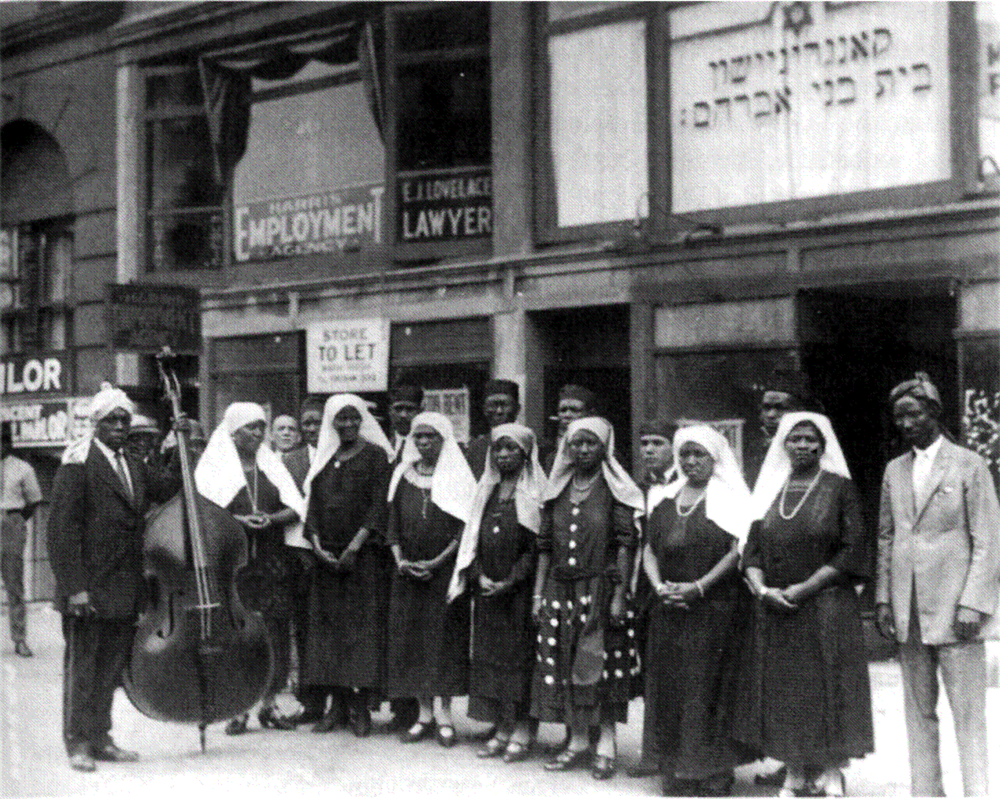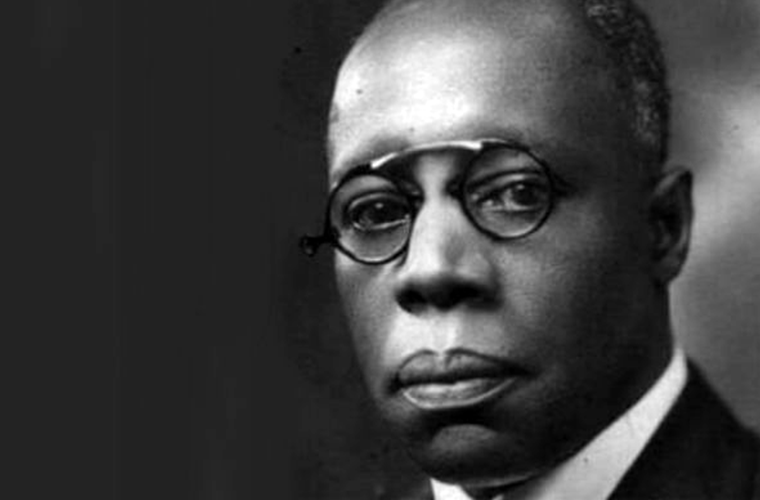Rabbi Arnold Josiah Ford was born on April 23, 1877, in Bridgetown, Barbados, to Edward Thomas Ford and Elizabeth Augustine Ford. He claimed that his father’s ancestry could be traced to the Yoruba tribe of Nigeria and his mother’s to the Mendi tribe of Sierra Leone and that their heritage extended back to one of the priestly families of the ancient Israelites. In Barbados, his family maintained customs and traditions that identified them with Judaism, such as observing the Sabbath, avoiding pork, and celebrating Passover.
Ford grew up to become a musician in the Royal Navy before settling in the United States around 1910. He was a talented linguist, poet, composer, and conductor who joined the Clef Club Orchestra, which first brought jazz to Carnegie Hall in 1912. He also became a member of the Scottish Rite Masons and a musical director of the Universal Negro Improvement Association (UNIA), founded by Marcus Garvey in 1917.

Ford was influenced by Garvey’s black nationalist and pan-Africanist ideology, which advocated for the unity and empowerment of people of African descent worldwide. He also embraced Judaism as the original religion of black people and believed that they were the true descendants of the biblical Israelites. He co-authored “The Universal Ethiopian Anthem” with Benjamin E. Burrell, which became a popular song among Garveyites and black Jews. He published the Universal Ethiopian Hymnal in 1920, which contained Hebrew prayers and songs.
Following Garvey’s arrest and conviction for mail fraud in 1923, Ford founded the Beth B’Nai Israel Synagogue in a Harlem storefront and declared himself to be a rabbi. He was never recognized as such by the wider Jewish community, but he attracted a small group of followers who studied Hebrew, religion, and history with him. He taught that black people should return to their ancestral homeland of Ethiopia, where he believed that Emperor Haile Selassie was the messiah.
In 1930, he and some of his congregants went to Ethiopia, where they participated in the coronation of Haile Selassie. They created a school and acquired 800 acres of land for the purpose of uniting black Jews of the Diaspora with their brothers already in Ethiopia. Ford died there in 1935, leaving behind a legacy as a pioneering figure of the black Hebrew movement.

